
As the prolonged social crisis continues to grip Yemen, it drags along a slew of issues—ranging from a sharp economic downturn to the scarcity of safe food and disruptions in public services. Unfortunately, it's the people, bearing the brunt of this situation, who end up with the heftiest bill. The gravity of the situation becomes even more pronounced this time: Thirst...
Social conflicts that have been going on for a long time do not only disrupt the functioning of state mechanisms. At the same time, this situation creates a domino effect, causing important frontiers such as the economy and then livelihood difficulties and access to safe food to open. So much so that it is estimated that more than 80 percent of Yemen's population needs humanitarian relief. This reveals the dire situation in almost the entire country.
This major humanitarian crisis, which has been going on for a long time and causes instability in Yemen, is causing millions of Yemeni civilians to flee their homes. The fact that this migration within the country is towards regions with more limited underground resources and that these are not sufficient for the increasing population triggers the problem of water shortage, further increasing the pressure on the people. Yemen is one of the countries with the most water shortage in the world, and every drop of water is very valuable. The lack of sufficient infrastructure to collect rainwater to provide water supply and recharge groundwater in the country. Both internal migration and rapid population growth cause water not to be used adequately, and this situation also threatens agricultural production. Therefore, this situation significantly affects food security and nutrition. This grave situation, which threatens the country's agricultural system, becomes more affected by the conflicts. 1
To solve problems…
As IBC, we took action together with our donor IDRF Canada and started the construction of both ordinary and solar energy water wells in order to solve this problem that the Yemeni people feel deeply. We took our first step in the Bir Al-Sheikh region in Khanfar, Abyan, Yemen. Approximately 160 families living in separate places within the region and struggling with great poverty benefit from the water well in this region for their homes and/or personal care. The water crisis in Yemen significantly affects agriculture and, indirectly, farming. Another problem caused by both of them is that access to food becomes almost impossible. As the International Blue Crescent Foundation, the Al-Drijah well, which we have implemented together with IDRF Canada, taking into account these important topics, is located on the route of passers-by and many farmers, and allows water to be taken throughout the day. Considering these fine details, the well provides a great advantage to the local people in terms of its location and usability. This well, which is used by approximately 200 families, is the most important water source of the region due to its functionality.
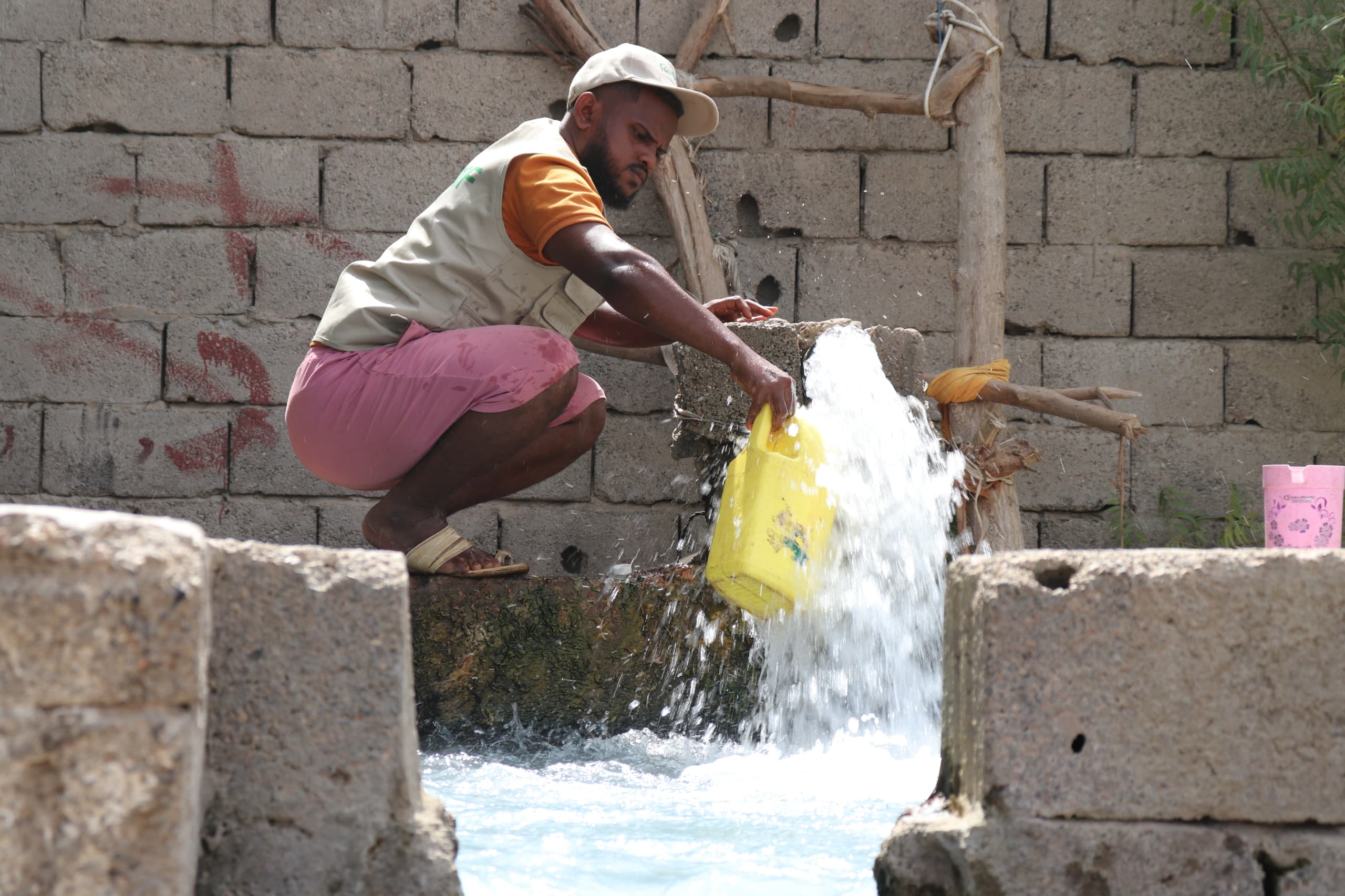 |
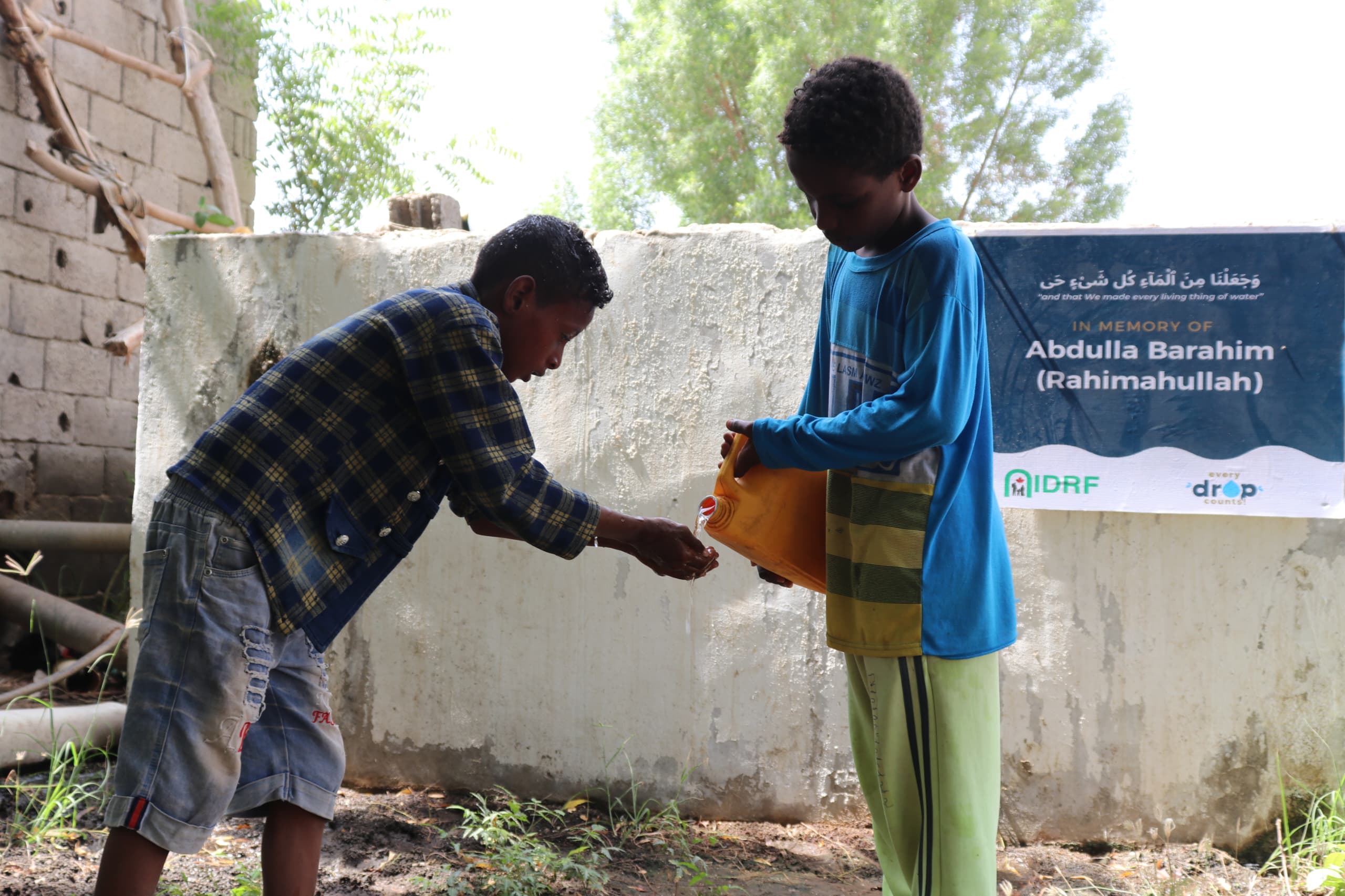 |
|
Local people benefiting from Al-Drijah well, Khanfar, Abyan |
|
Meklan stands as one of Yemen's crucial wells, surrounded by nearly 400 families whose sole access to water hinges on its existence. Water, a fundamental necessity for human life, has historically dictated the birthplaces of civilizations, with proximity to water sources being a pivotal factor. The areas surrounding Amodiya, Aslan, Al Najma Alhamra, and Kadmat Al Feesh water wells are home to approximately 1000 families benefitting from these wells for their daily water requirements.Regrettably, there are others in Yemen sharing the same plight as these families. At IBC, in collaboration with IDRF Canada, we persist in our efforts to address this pressing crisis faced by the Yemeni people. Seeking a collective resolution to this shared destiny, the Al Hosn well becomes a beacon of hope in a region where around 6000 families endure harsh conditions, struggling to meet even the most basic needs. In their struggle for survival, this well stands as the sole source meeting the water needs of the community.
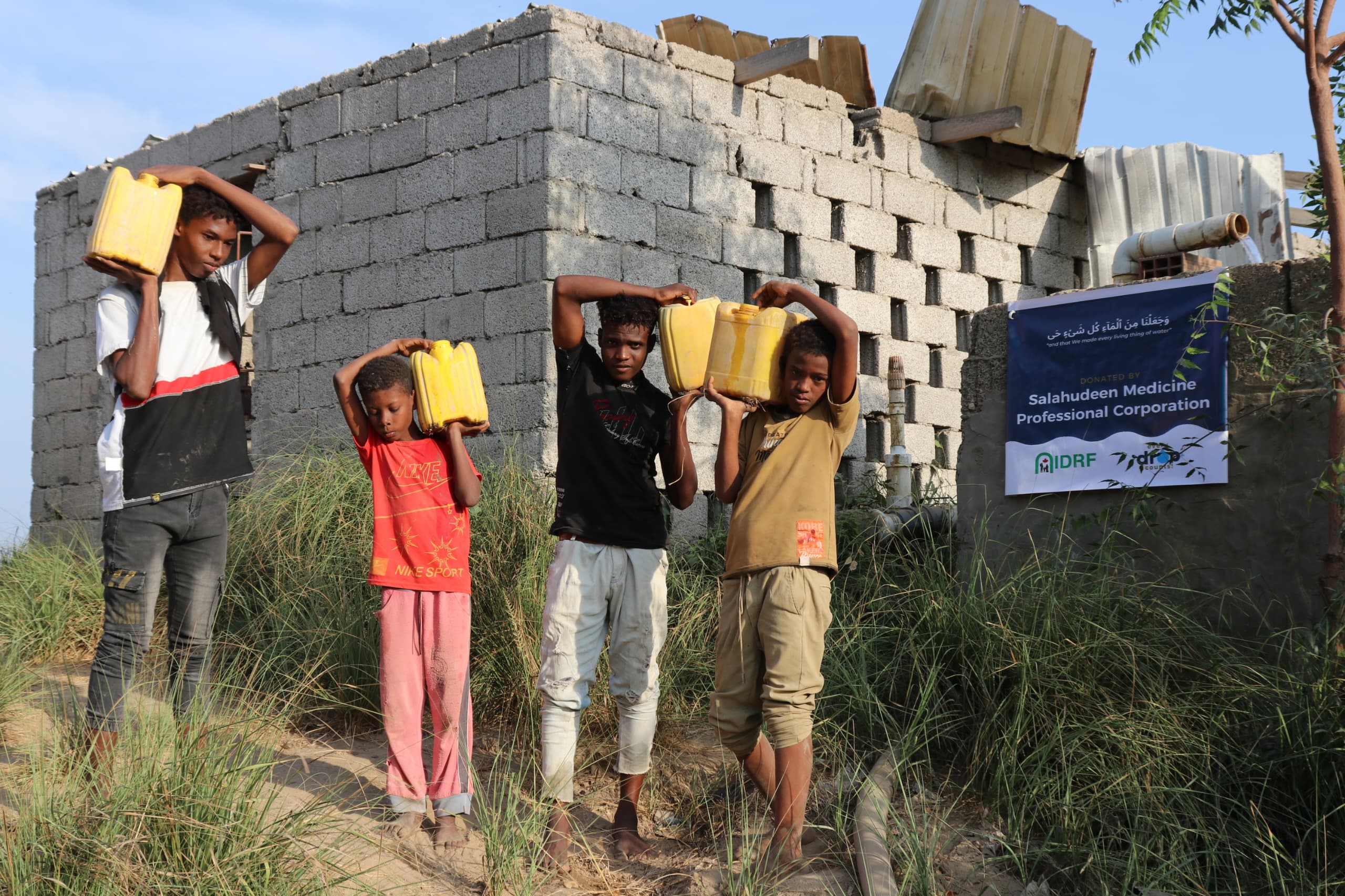 |
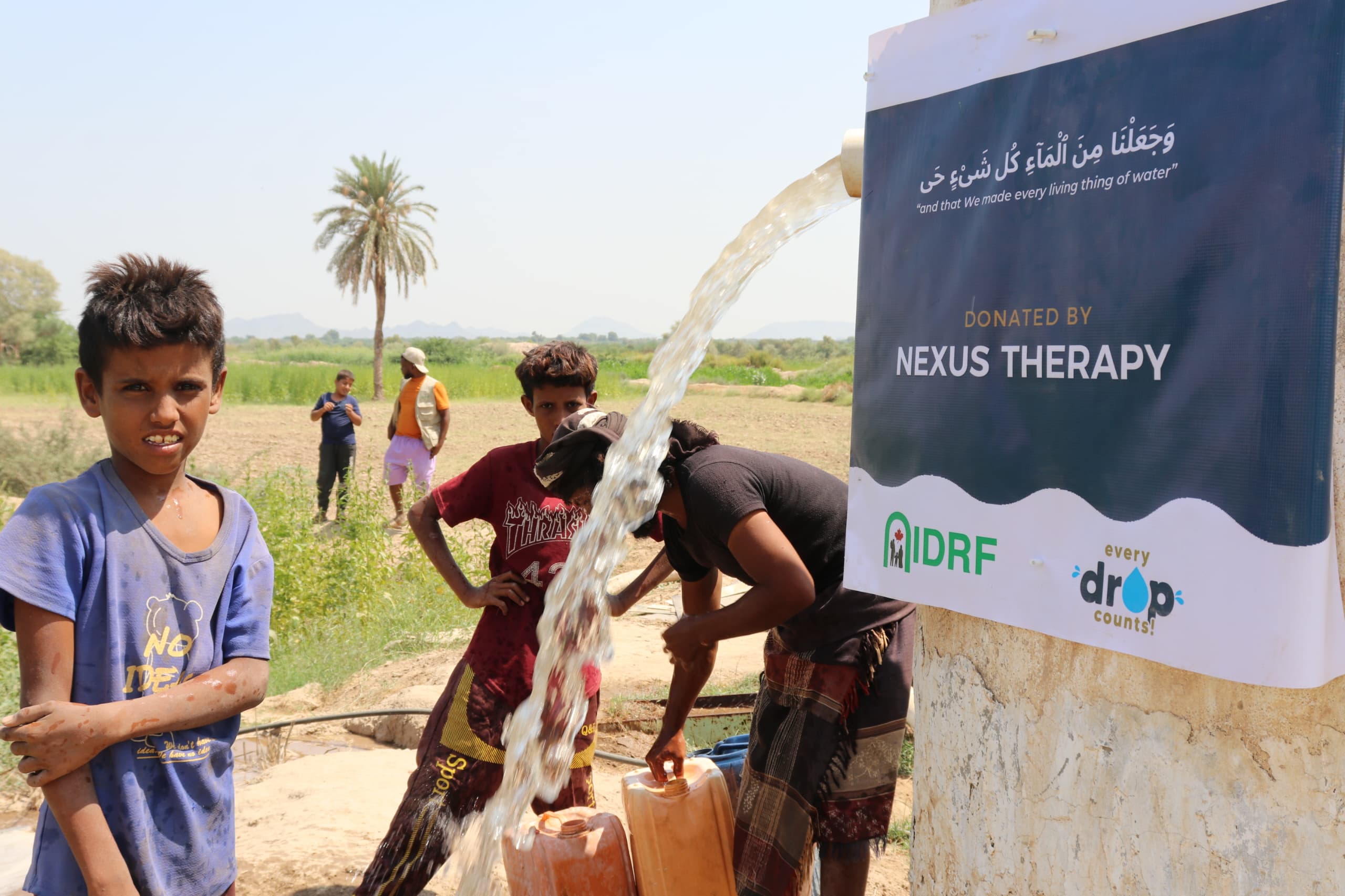 |
|
Children filling water from Al Feesh and Al Hosn wells, Khanfar, Abyan |
|
Another of the water wells located in Khanfar, Abyan region is Al Haija. This well is located in a place where approximately 250 families live, quite far from the city center; It is of great importance as it is the only water source that everyone, whether men, women, young or old, can benefit from. Another important water well in terms of its location is Al Joul Village. This well is located in a camp where approximately 500 families, who need even the most basic needs such as food and shelter and live in severe poverty, try to survive. Although water is one of the most basic needs of humans, it is also of great importance and can cause serious health problems due to poor hygiene. For this reason, we paid great attention to the construction of water wells in the Khanfar, Abyan region to prevent serious health problems. Khabat Al-Asloum Village, Khabat Al-Asloum II Village, Al Jisr, Al Khamila Village water wells, which are located in the same region but established in different locations, continue to be a lifeline for approximately 2000 families living in difficult living conditions.
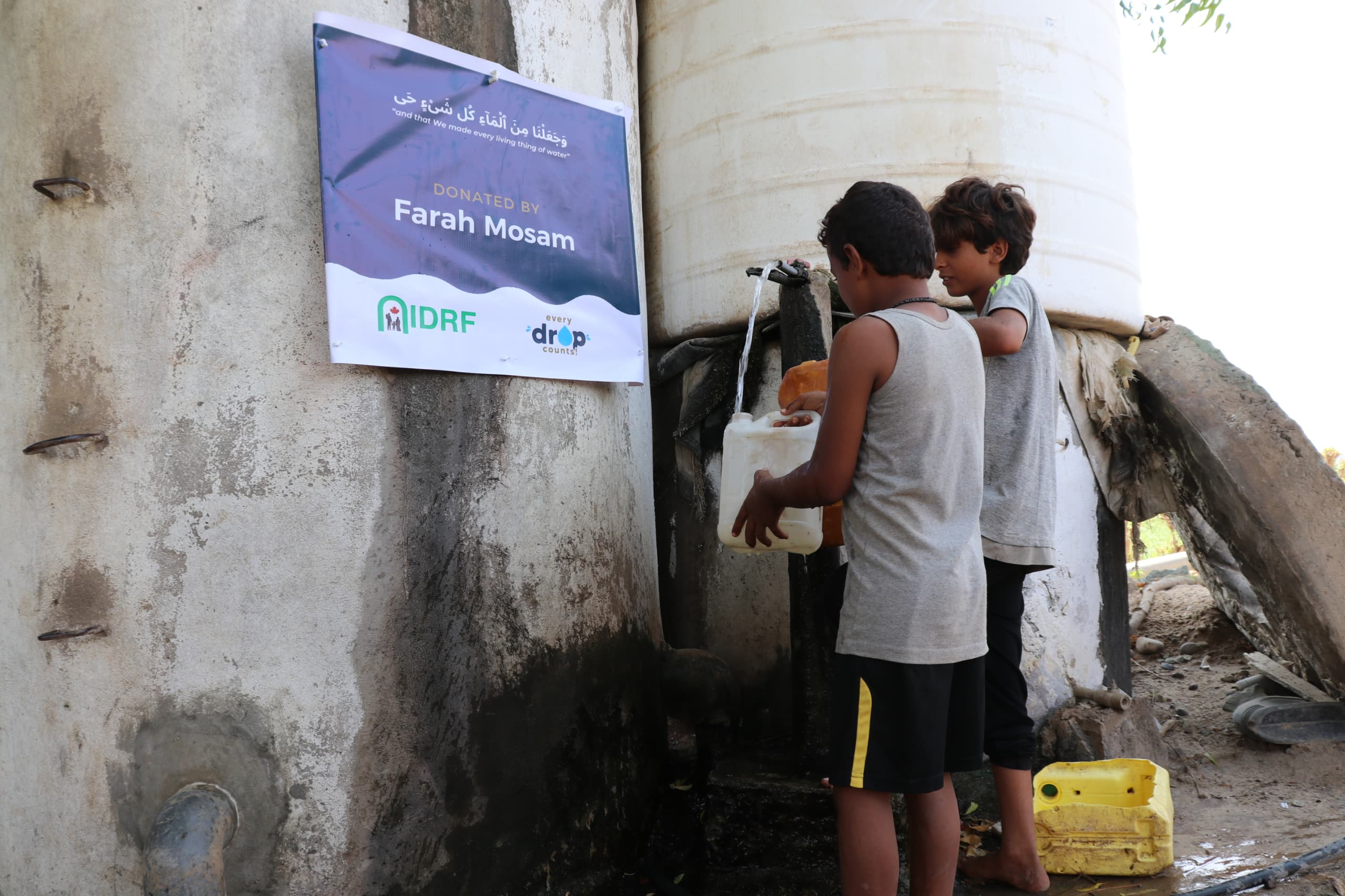 |
|
Children getting water for their families from Al Haija well, Khanfar, Abyan |
Continue to work with dedication…
As IBC, together with IDRF Canada, we have also constructed solar energy-powered wells in addition to the conventional water wells in Khanfar, Abyan. We provided access to water for approximately 7 thousand people living in Al Aeeg, Gaaodah, Sana and Dafeesh villages in Hadramout through solar energy-supported water systems. At the same time, it was aimed to improve the water scarcity and hygiene conditions experienced by the people living here by building a solar-powered well in Zinjibar, which has a serious problem of access to water despite being a port city and coastal town in South-Central Yemen.
As IBC, together with IDRF Canada, we installed water wells powered by solar energy systems in Aden Governorate, two in Aden, two in Al Mansoura, one in Al-Shaikh Outman and one in Khur Maksar; The construction of 22 conventional water wells started simultaneously in the designated villages of Hadramout province. The civil war in Yemen, which caused difficult conditions in all areas of the country and aggravated the already existing water shortage, also brought with it health problems. Therefore, the water wells built in needed villages in Hadramout province included a WASH component beyond meeting basic needs.
As IBC, we will always continue to support people in need of help wherever they are in the world and to work to make their lives easier. Considering the disasters that have occurred and continue today to enable our activities to be implemented, we need the support of our dear donors more than ever.